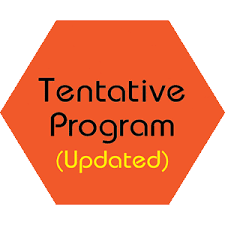
Fatima Alzahra Abdul Rahman M
International University of Africa, Sudan
Title: Effect of innovative participatory health education program to augment knowledge, attitude and practices of mothers of children with sickle cell anemia
Biography
Biography: Fatima Alzahra Abdul Rahman M
Abstract
Statement of the Problem: Sickle cell anemia (SCA) is one of the commonest devastating neglected disorders in Sudan particularly in western region in North Darfur State. Most SCA patients are from IDP camps, nomadic tribes with low socioeconomic status and have no real background about the disease. No dedicated center for SCA to provide care for those patients who pose a real financial, physical, psychological burden for affected children and their families.
Purpose: The purpose of this study is to evaluate the effect of an innovative participatory health education program about SCA to augment knowledge, attitude, and practices of mothers of the affected children.
Methodology: A quasi experimental pretest-posttest design was conducted in El Fasher City and three (IDPs) camps. 127 mothers were consecutively selected from El Fasher Hospital general pediatric referral clinic over four months period. Fifteen mother and community outreach members from the same community were trained as peer educators to conduct the health education on SCA for the participants through home visits and community outreach group sessions using simple educational materials prepared for the study. Semi-structured questionnaire used before and after the intervention and six months following the program intervention to assess the knowledge, attitude, and care practices of participants. Data were analyzed by SPSS version 20.
Findings: A statistically significant improvement was found in knowledge, attitude and care practices of caregivers about the disease after the program intervention. Before the intervention, the mean hospitalization rate was 2.3 times in 6 months, where after 6 month from the intervention reduced to 1.8 times.
Recommendations: The use of peer educators from the local community could be an effective approach for increasing knowledge, improving attitudes and practice of care towards SCA.

